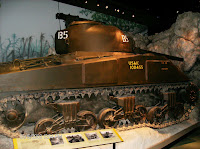 I cannot think of a more fitting time for a posting that I have been playing around with for some little while. (You would be amazed if I told you how many times some of these were edited or rewritten.) So just one day after the 4th of July, the anniversary of both the death John Adams and Thomas Jefferson in 1826 (our 2nd and 3rd Presidents respectively) , I offer the following.
I cannot think of a more fitting time for a posting that I have been playing around with for some little while. (You would be amazed if I told you how many times some of these were edited or rewritten.) So just one day after the 4th of July, the anniversary of both the death John Adams and Thomas Jefferson in 1826 (our 2nd and 3rd Presidents respectively) , I offer the following.
In 1967, Simon & Garfunkel wrote, "Where have you gone Joe DiMaggio? Our nation turns it's lonely eyes to you." This line in the song "Mrs. Robinson" from the movie "The Graduate" speaks to a confused culture, crying out for a simpler time when heroes were easier to recognize, easier to admire, and easier to gain inspiration from. The sentiment was a noble one, but picking a baseball player may be a little more naive than can be tolerated in the reality of today's world. If we really wanted to pick a true hero, we should go back more than 200 years to one of our Founding Fathers, Thomas Jefferson, for the type of inspiration that we could use today.
Here is a man who served his country well and fully as a member of the Assembly and Governor of Virginia, Ambassador to the Court of France, Secretary of State, Vice-President, and as our 3rd President. Most importantly, he served as a delegate to the Second Continental Congress. It is in that early role that we see his intelligence, his eloquence, and his vision as he penned the Declaration of Independence.
The truly amazing thing about this is that Jefferson did all of it while earning a living as a: farmer, lawyer, inventor, horticulturist, archaeologist, paleontologist, author, and architect (oh yeah, and he also helped found the University of Virginia). In spite of all of the time he spent in government service, Jefferson ultimately remained a private citizen, believing in the concept of the "yeoman farmer" as the ideal. Serving the government when required was a duty, not a profession; and was performed as personal sacrifice.
This belief in working with the land made him suspicious of urban dwelling as well. Jefferson loathed both commerce and manufacturing as ways of life, seeing them as temptations for corruption. He was also skeptical of both newspapers and banks. When the discussion of a National Bank arose, he said:
"I sincerely believe, with you, that banking establishments are more dangerous than standing armies; and that the principle of spending money to be paid by posterity, under the name of funding, is but swindling futurity on a large scale."
(You have to wonder how he would feel about the current state of the Federal budget and the Federal Reserve.)
In truth, he had nothing but contempt for large cities, and believed that the country was best served when there were new lands to conquer. It was this vision, over strong opposition in the country at the time, that compelled him to complete the Louisiana Purchase in 1803 (many thought it was in fact, unconstitutional at the time). This massive land purchase from Napoleon for just over $23,000,000 now encompasses about 23% of the Continental United States, and truly established the US as a world power. This new frontier, and the Lewis and Clark expedition to explore it, fit very well with the concepts of freedom as Jefferson understood them, and provided citizens at the time with the chance to act in relative isolation and independence, free from the entanglement of government and growing with the country.
Above all, Jefferson was a man who believed in Republican principles (no, not the political party, but the principles of representative government). He truly believed in the inalienable rights of man, restricted only by interference with the rights of other men. He also believed that men had an innate sense of morality, which would allow them to restrain themselves from interfering with their fellow man's rights. He believed that because of the nature of man, little government was necessary, or preferable. Government's only function would be to prohibit individuals from infringing on rights of other individuals and to restrain itself from diminishing individual freedom. (I would say that belief in such principles today would make Jefferson sound like a libertarian, but I wouldn't want to place the "right-wind lunatic" label on one of our Founding Fathers.)
The epitaph on his tombstone (he was buried on his Monticello estate), is one that he himself wrote with the insistence that it be only his words used and "not one word more". It was simply:
HERE WAS BURIED THOMAS JEFFERSON
AUTHOR OF THE DECLARATION OF AMERICAN INDEPENDENCE
THE STATUTE OF VIRGINIA FOR RELIGIOUS FREEDOM
AND FATHER OF THE UNIVERSITY OF VIRGINIA
Where are those today who believe in the rights and responsibilities of Man? Where are those who believe in the limits of government? Where are the true defenders of Republicanism today? Where those who contribute from a broad range of knowledge to their society? Where are those citizen-servants who leave private life only for a brief period in order to serve their fellow citizens in government? Where have you gone, Thomas Jefferson?






























